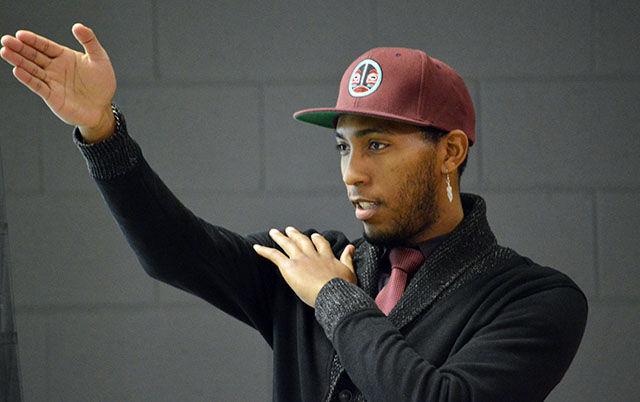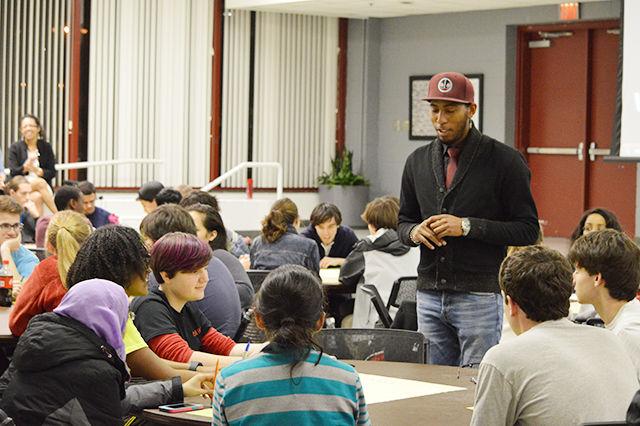The Native American Student Association hosted nearly 50 students in Witherspoon Student Center Monday night for the event, “We Gon’ Be Alright,” to discuss the issues that African-Americans and Native Americans face daily. Kyle T. Mays, a historian who studied at the University of Illinois, who also has a Ph.D. and a Native and African-American background, led the discussion.
Seeking to further educate students, Mays presented current diversity issues. He allowed students to sit in groups and speak to each other to discuss certain topics and provide answers to certain questions that Mays asked.
Mays also enlightened students with songs that represent culture and movements going on today. Some songs, such as Beyonce’s “Formation,” represented issues that our country faces today. Others played on how we don’t seem to realize racism when we see or hear it — for example, “What Makes the Red Man Red,” from the movie “Peter Pan.”
Speaking on the Black Lives Matter and Native Lives Matter movements, Mays discussed the issue with the media’s underrepresentation and misconception about the movements.
Mays asked, “What does Black Lives Matter mean to you?” followed with, “What does Native Lives Matter mean to you?” Students seemed to understand the Black Lives Matter movement well, while most didn’t realize there was a Native Lives Matter movement as well.
Jonah Lane, a freshman studying business, attended the event.
“Black Lives Matter is a big issue here,” Lane said, “but the Native Lives thing is new to me; it’s something that I plan to look into more.”
Mays spoke about how Native American people are misrepresented within the country today.
“Native people still exist and dispossession is a thing that continues,” Mays said.
Mays was intent on showing the students how little they hear about Native people who still live in the United States, and the many who even live in North Carolina. He gave some disparaging facts about the misrepresentation on the Native people. Some include the fact that Native Americans experience the highest rate of police brutality and murder in the U.S.
Mays also said Native American women are much more likely to experience violence and/or rape. A major fact Mays pushed is that 80 percent of Native Americans live in urban areas, not on reservations like many believe.
Mays also discussed some personal experience with racial issues.
“I will say this — I feel like black Americans racialize me as black, and Native people racialize me as not being Indian enough, and I think that’s a problem that needs to be explored much more sophisticatedly,” Mays said.
The students who attended sat at round tables where they discussed with other students when prompted to do so. Thoughts that were shared were recorded and one person from each group would then say what that group discussed individually.
Karli Moore, a senior studying chemistry at NC State, has a Native background and attended the event.
“I appreciated hearing about all the complex issues,” Moore said. “I know about a lot of them, being Native American.”
Brittany Hunt, a Native American from the Lumbee Tribe, is the assistant director of the association. She and Marcus Zeigler, the president of the Society of Afrikan American Culture, partnered to plan the event.
Dr. Kyle T. Mays, a history postdoctoral fellow at UNC Chapel Hill, speaks during "We Gon Be Alright" in the Washington Sankofa room in Witherspoon Student Center on Monday, February 22, 2016. Dr. Mays was invited to speak by NCSU's Society of Afrikan American Culture. An integral point of Dr. Mays' beliefs focus on utilizing education to instate social transformation. Dr. Mays has received numerous awards during his time as a graduate student, and is also a founding editorial manager for the "Native American and Indigenous Studies Journal".









